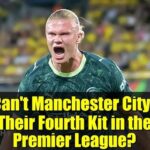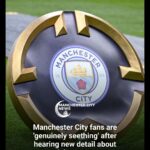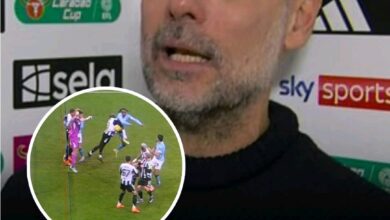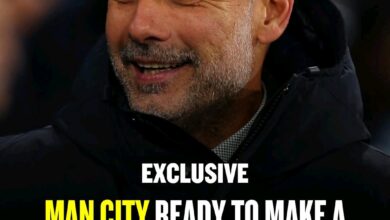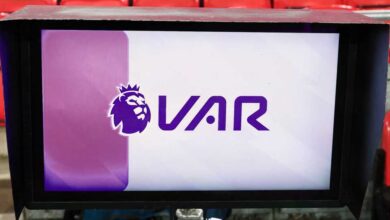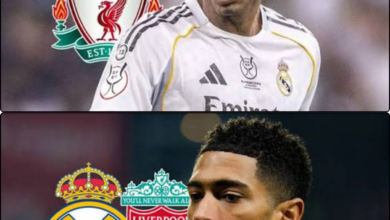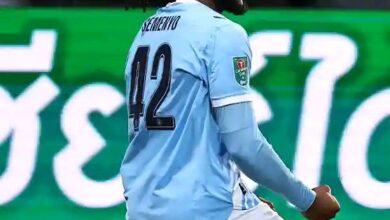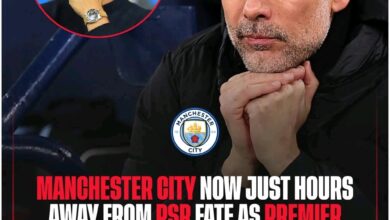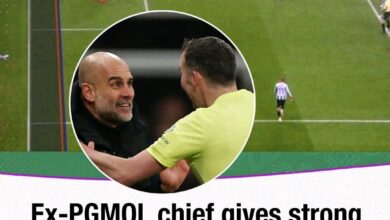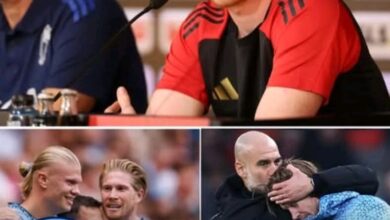Manchester City’s PUMA Partnership: A Comprehensive Analysis of Fan Discontent and Commercial Strateg
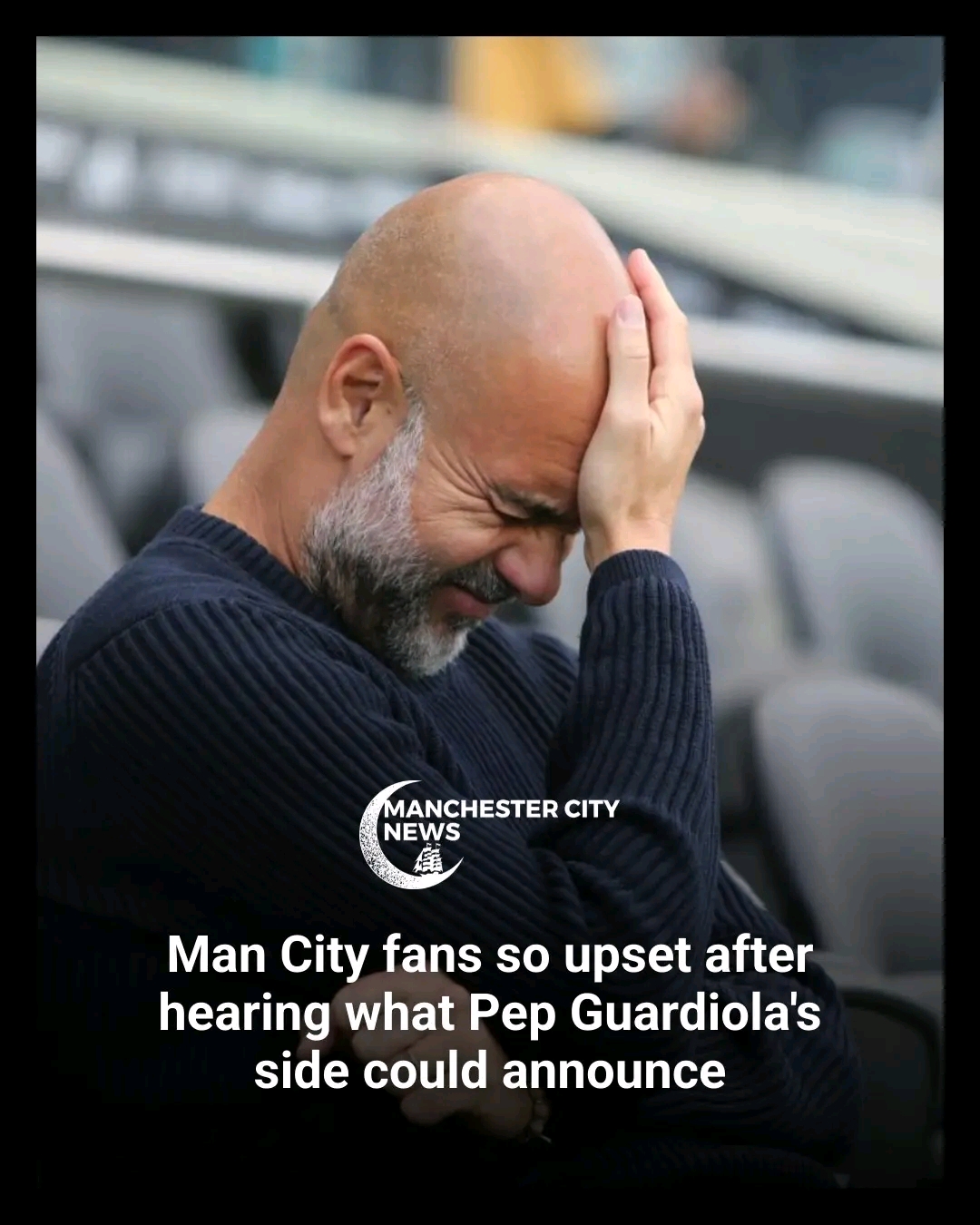
In the rapidly evolving landscape of modern football, few aspects of club operations generate as much passionate debate among supporters as kit design and sponsorship deals. Manchester City’s recent announcement of a long-term contract extension with German sportswear giant PUMA has ignited a firestorm of controversy among the club’s fanbase, revealing a fascinating disconnect between commercial strategy and supporter sentiment. This development, while representing a significant financial milestone for the club, has exposed deep-seated frustrations among City supporters who have grown increasingly critical of PUMA’s design philosophy and creative direction since the partnership began in 2019.
The reaction from Manchester City fans has been swift and overwhelmingly negative, with supporters taking to social media platforms to express their dismay at the prospect of enduring what they perceive as substandard kit designs for years to come. The intensity of this backlash reflects not merely aesthetic preferences, but deeper concerns about the club’s commercial priorities and the balance between financial considerations and fan satisfaction. As Manchester City continues to establish itself as one of the world’s premier football clubs, the tension between commercial success and supporter engagement has never been more apparent.
This comprehensive analysis examines the multifaceted dimensions of Manchester City’s extended partnership with PUMA, exploring the financial implications, fan reactions, historical context, and broader trends in football kit design and sponsorship deals. The story reveals how even the most successful clubs must navigate the complex relationship between commercial imperatives and fan expectations, and how these dynamics can significantly impact supporter loyalty and engagement
The extension of Manchester City’s partnership with PUMA represents far more than a simple kit supply arrangement; it constitutes a crucial component of the club’s broader commercial strategy and financial sustainability model. In the modern football ecosystem, kit sponsorship deals have evolved into sophisticated partnerships that encompass not only the supply of playing and training apparel but also extensive marketing collaborations, retail operations, and brand development initiatives.
The financial implications of such deals cannot be overstated in the context of Financial Fair Play regulations and the increasing pressure on clubs to generate sustainable revenue streams. While the specific terms of Manchester City’s extended agreement with PUMA have not been publicly disclosed, industry analysts suggest that such partnerships typically involve annual payments in the tens of millions of pounds, with additional performance-related bonuses and revenue-sharing arrangements for merchandise sales.
The timing of this contract extension is particularly significant given the current economic climate in football and the ongoing challenges faced by clubs in the post-pandemic era. Manchester City’s ability to secure a long-term partnership with a major sportswear brand demonstrates the club’s continued commercial attractiveness and market appeal, factors that are crucial for maintaining competitive advantage both on and off the pitch.
However, the financial benefits of such partnerships extend beyond the immediate monetary considerations. The association with a globally recognized brand like PUMA provides Manchester City with access to extensive distribution networks, marketing expertise, and technological innovation in sportswear design. These elements contribute to the club’s overall brand value and global reach, factors that have become increasingly important in the modern football landscape.
The commercial team at Manchester City, led by executives who have successfully navigated the complex world of football sponsorship, understands that kit deals represent one of the most visible and marketable aspects of club operations. Unlike stadium naming rights or training ground partnerships, kit sponsorships are seen by millions of fans worldwide during every match, making them invaluable marketing assets for both the club and the sponsor
The reaction from Manchester City supporters to the announcement of the extended PUMA partnership has been characterized by a level of frustration and disappointment that reflects years of accumulated dissatisfaction with the brand’s design approach. The fan responses, documented across various social media platforms and fan forums, reveal a pattern of criticism that extends beyond mere aesthetic preferences to encompass broader concerns about the club’s commercial decision-making process.
The most common complaint among supporters centers on what they perceive as a lack of creativity and originality in PUMA’s kit designs for Manchester City. Fans have frequently cited the brand’s tendency to produce what they describe as “template” designs that lack the distinctive character and heritage references that supporters associate with their club’s identity. This criticism has been particularly acute regarding the club’s away and third kit designs, which fans argue have failed to capture the essence of Manchester City’s rich history and cultural significance.
The sentiment expressed by one supporter that “Another decade of hideous kits” awaits the club encapsulates the widespread frustration among the fanbase. This reaction reflects not only dissatisfaction with current designs but also concern about the long-term implications of the extended partnership. The prospect of enduring what fans perceive as substandard designs for an extended period has amplified the negative reaction to the announcement.
Social media analysis reveals that the criticism extends beyond individual kit designs to encompass broader concerns about PUMA’s understanding of Manchester City’s identity and heritage. Supporters have frequently compared PUMA’s work unfavorably to previous partnerships, particularly the period when Umbro supplied the club’s kits. The nostalgic references to Umbro’s designs suggest that fans view the current partnership as a step backward in terms of creative quality and cultural authenticity.
The intensity of fan reaction also reflects the emotional investment that supporters have in their club’s visual identity. For many fans, kit designs represent more than mere sportswear; they are symbols of belonging, identity, and connection to the club’s history and traditions. When supporters perceive that these symbols are being compromised or commoditized, their reactions can be particularly passionate and sustained.
The democratic nature of social media has amplified these voices and created a platform for collective expression of dissatisfaction. The ability for fans to share their opinions instantly and widely has transformed the way clubs receive feedback about commercial decisions, creating new pressures and considerations for management teams.
To fully understand the current controversy surrounding the PUMA partnership, it is essential to examine the historical context of Manchester City’s kit sponsorship arrangements and how they have evolved over the decades. The club’s relationship with kit suppliers has undergone significant changes, reflecting broader trends in football commercialization and the increasing importance of sportswear partnerships in club finances.
Prior to the PUMA era, Manchester City enjoyed a long-standing relationship with Umbro, a partnership that many supporters now view through rose-tinted glasses. The Umbro years, which spanned multiple decades, produced several iconic designs that remain beloved by fans and are frequently referenced in discussions about the club’s visual identity. The 2010/2011 away kit, which featured a distinctive design that captured the essence of Manchester’s industrial heritage, is often cited as an example of how kit designs can successfully balance commercial considerations with cultural authenticity.
The transition from Umbro to Nike in 2013 marked a significant shift in the club’s commercial strategy, coinciding with the club’s emergence as a major force in world football under the ownership of the City Football Group. The Nike partnership, while commercially successful, was also marked by periods of fan criticism, particularly regarding certain kit designs that supporters felt failed to capture the club’s unique character.
The arrival of PUMA in 2019 was initially welcomed by many supporters, who hoped that the German brand would bring fresh perspectives and innovative designs to the club’s kit portfolio. However, the initial optimism has gradually given way to the current wave of criticism, suggesting that the honeymoon period for new partnerships in modern football may be shorter than in previous eras.
The historical analysis reveals that kit design controversies are not unique to the PUMA era but represent a recurring theme in Manchester City’s commercial evolution. Each partnership change has been accompanied by periods of adjustment and criticism, reflecting the challenge of satisfying diverse fan expectations while meeting commercial objectives.
The nostalgia for previous partnerships, particularly the Umbro era, also reflects broader cultural trends in football fandom, where supporters often idealize past periods while being critical of contemporary developments. This phenomenon is not unique to Manchester City but represents a common pattern across football clubs worldwide.
Understanding PUMA’s design philosophy for Manchester City requires examination of the brand’s broader approach to football kit design and how it has been adapted to reflect the club’s identity and commercial objectives. PUMA’s strategy appears to balance global brand consistency with local club identity, a challenging task that has produced mixed results according to fan feedback.
The German sportswear company’s approach to Manchester City kits has been characterized by several recurring themes and design elements. The brand has frequently incorporated references to Manchester’s industrial heritage, with designs that attempt to capture the city’s cultural significance and historical importance. However, critics argue that these references often feel superficial or contrived, failing to achieve the authentic connection with local culture that supporters desire.
PUMA’s tendency to create “remake” or “heritage” versions of previous successful designs has been a particular source of criticism among supporters. While this approach may be intended to tap into nostalgia and honor the club’s history, fans have interpreted it as a lack of creativity and originality. The criticism that PUMA produces “recreated kits, no originality” reflects this sentiment and suggests that supporters prefer innovative designs over nostalgic reproductions.
The brand’s use of template designs across multiple clubs has also drawn criticism from Manchester City supporters, who argue that this approach fails to capture the unique character of their club. The perception that PUMA applies similar design principles across different clubs, with only minor variations in color and detailing, has contributed to the sense that Manchester City’s kits lack distinctiveness and individual character.
From a technical perspective, PUMA’s kits have generally received positive feedback for their quality and performance characteristics. The brand’s investment in fabric technology and construction quality has been acknowledged by players and supporters alike. However, the focus on technical performance has not been sufficient to overcome the aesthetic criticisms that have dominated fan discussions.
The brand’s marketing approach has also influenced fan perceptions of the partnership. PUMA’s emphasis on global marketing campaigns and celebrity endorsements has sometimes been seen as disconnected from the local culture and traditions that Manchester City supporters value. This disconnect between global marketing strategies and local fan expectations has contributed to the current dissatisfaction.
The perspective of Manchester City’s leadership, particularly that of chairman Khaldoon Al Mubarak, provides crucial insight into the club’s rationale for extending the PUMA partnership despite evident fan dissatisfaction. Al Mubarak’s public statements defending the partnership reveal the considerations that drive commercial decision-making at the highest levels of the club.
Al Mubarak’s praise for PUMA as “phenomenal partners” and his emphasis on the brand’s “creativity” suggests that the club’s leadership evaluates the partnership based on criteria that may differ from those used by supporters. The chairman’s specific reference to the club’s away kit from the previous season as “superb” and “a huge hit” indicates that the club measures success through different metrics than those applied by the fanbase.
The involvement of celebrity supporters like Noel Gallagher in kit design processes represents an attempt to bridge the gap between commercial considerations and fan expectations. By incorporating recognizable figures from Manchester’s cultural landscape, the club appears to be trying to add authenticity and local relevance to the partnership. However, this approach has not been suffic
